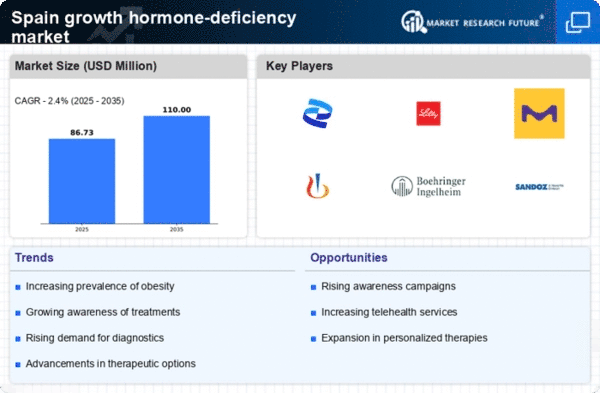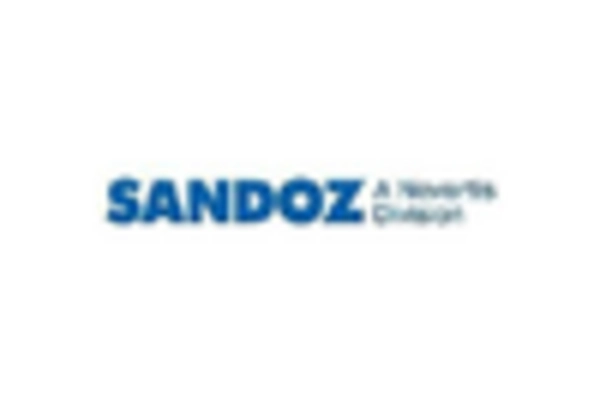Government Initiatives and Funding
Government initiatives aimed at addressing growth hormone deficiency are significantly impacting the growth hormone-deficiency market in Spain. The Spanish government has allocated increased funding for research and development in endocrinology, which is likely to lead to more effective treatment options. Additionally, public health campaigns are being launched to raise awareness about growth hormone deficiency, encouraging early diagnosis and treatment. This proactive approach is expected to boost market growth, with estimates suggesting a potential increase of 4% in market size over the next few years as more patients seek treatment.
Increased Focus on Personalized Medicine
the growth hormone-deficiency market is shifting towards personalized medicine., which is reshaping treatment approaches. Tailoring therapies to individual patient needs based on genetic and metabolic profiles is becoming more prevalent in Spain. This trend is driven by advancements in genetic testing and biomarker identification, allowing for more effective and targeted treatments. As healthcare providers adopt personalized strategies, the growth hormone-deficiency market is expected to see a growth rate of approximately 7% over the next few years, reflecting the increasing demand for customized healthcare solutions.
Aging Population and Associated Health Issues
The aging population in Spain is contributing to a rise in health issues related to growth hormone deficiency. As individuals age, the natural decline in growth hormone levels can lead to various health complications, including decreased muscle mass and increased fat accumulation. This demographic shift is prompting healthcare providers to focus on hormone replacement therapies, thereby expanding the growth hormone-deficiency market. Projections indicate that the market could grow by 5% annually as more older adults seek treatment options to improve their quality of life and manage age-related health concerns.
Rising Prevalence of Growth Hormone Deficiency
the growth hormone-deficiency market in Spain is seeing an increase in prevalence rates.. Recent studies indicate that approximately 1 in 3,000 children are diagnosed with growth hormone deficiency, leading to a growing demand for treatment options. This rise in cases is attributed to improved diagnostic techniques and increased awareness among healthcare professionals. As more individuals are identified, the market is likely to expand, with an estimated growth rate of 5.5% annually. The increasing number of patients necessitates a robust supply of growth hormone therapies, thereby driving the growth hormone-deficiency market forward.
Technological Innovations in Treatment Delivery
Technological advancements are playing a crucial role in the growth hormone-deficiency market. Innovations such as smart delivery devices and wearable technology are enhancing patient compliance and treatment efficacy. For instance, the introduction of auto-injectors has simplified the administration of growth hormone therapies, making it more accessible for patients. Furthermore, telemedicine platforms are facilitating remote monitoring and consultations, which is particularly beneficial in Spain's rural areas. These technological improvements are expected to contribute to a projected market growth of 6% over the next five years, as they enhance the overall treatment experience for patients.
















